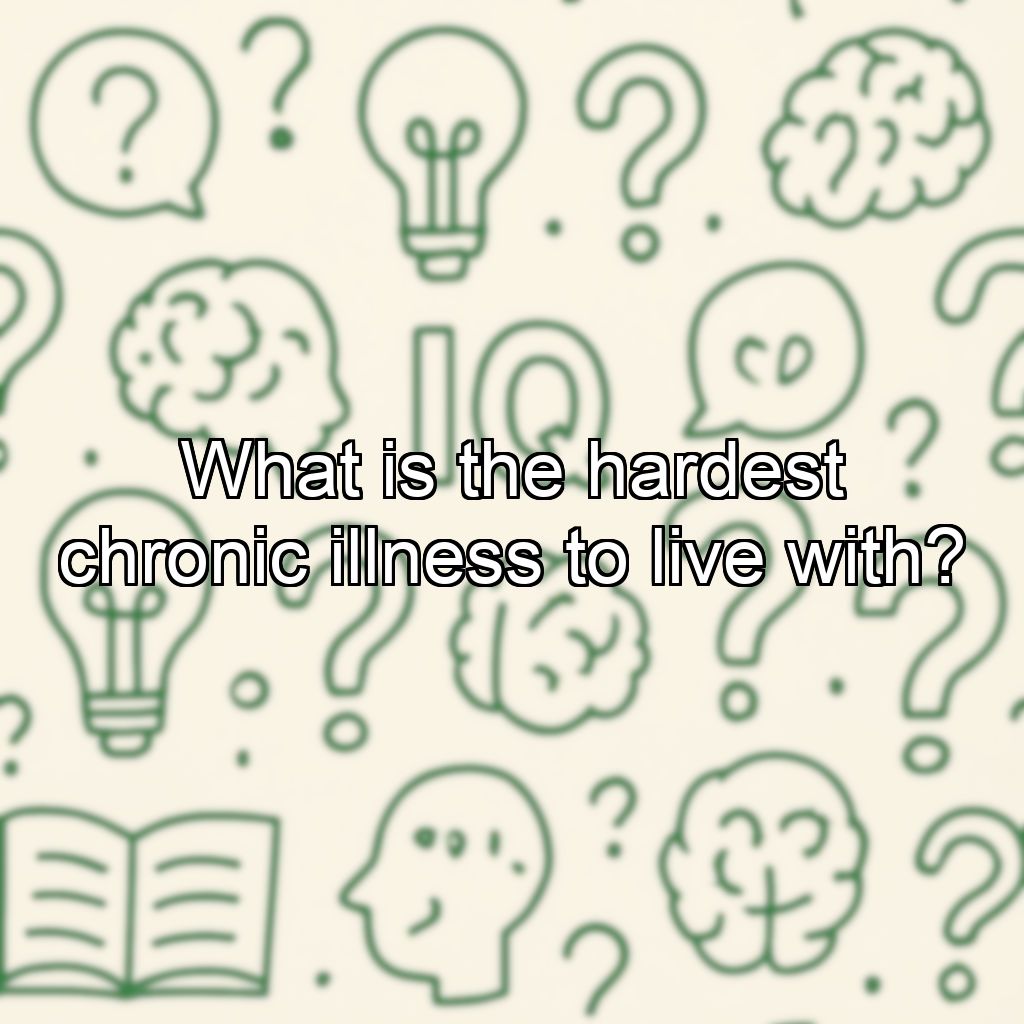What is the hardest chronic illness to live with?

Understanding the Hardest Chronic Illnesses
There is no single answer to which chronic illness is the hardest to live with, as the experience varies greatly from person to person. However, several chronic illnesses are widely recognized for their significant impact on daily life, both physically and emotionally.
Factors That Influence Difficulty
- Severity of Symptoms: Some illnesses cause constant pain, fatigue, or disability.
- Visibility: Invisible illnesses can lead to misunderstanding and lack of support.
- Treatment Complexity: Illnesses that require frequent, invasive, or complex treatments can be very challenging.
- Impact on Independence: Loss of mobility or cognitive function affects quality of life greatly.
- Mental Health Effects: Many chronic illnesses are associated with depression or anxiety.
Examples of Especially Challenging Chronic Illnesses
- ALS (Amyotrophic Lateral Sclerosis): A progressive neurodegenerative disease leading to loss of muscle control. It often results in total paralysis while mental function remains intact.
- Chronic Pain Conditions: Such as fibromyalgia, complex regional pain syndrome, and severe rheumatoid arthritis, which can be both physically and emotionally exhausting.
- Advanced Multiple Sclerosis: Causes a wide range of symptoms, including mobility issues, vision problems, and cognitive decline.
- Chronic Fatigue Syndrome (Myalgic Encephalomyelitis): Severe fatigue and cognitive dysfunction with no known cure.
- End-stage Renal Disease: Requires regular dialysis, strict diets, and lifestyle changes.
- Severe Mental Illnesses: Schizophrenia, bipolar disorder, and severe depression can be as debilitating as physical illnesses.
Conclusion
The hardest chronic illness to live with depends on individual circumstances, support systems, and personal resilience. All chronic illnesses can be challenging, and it's important to approach each person's experience with empathy and understanding.